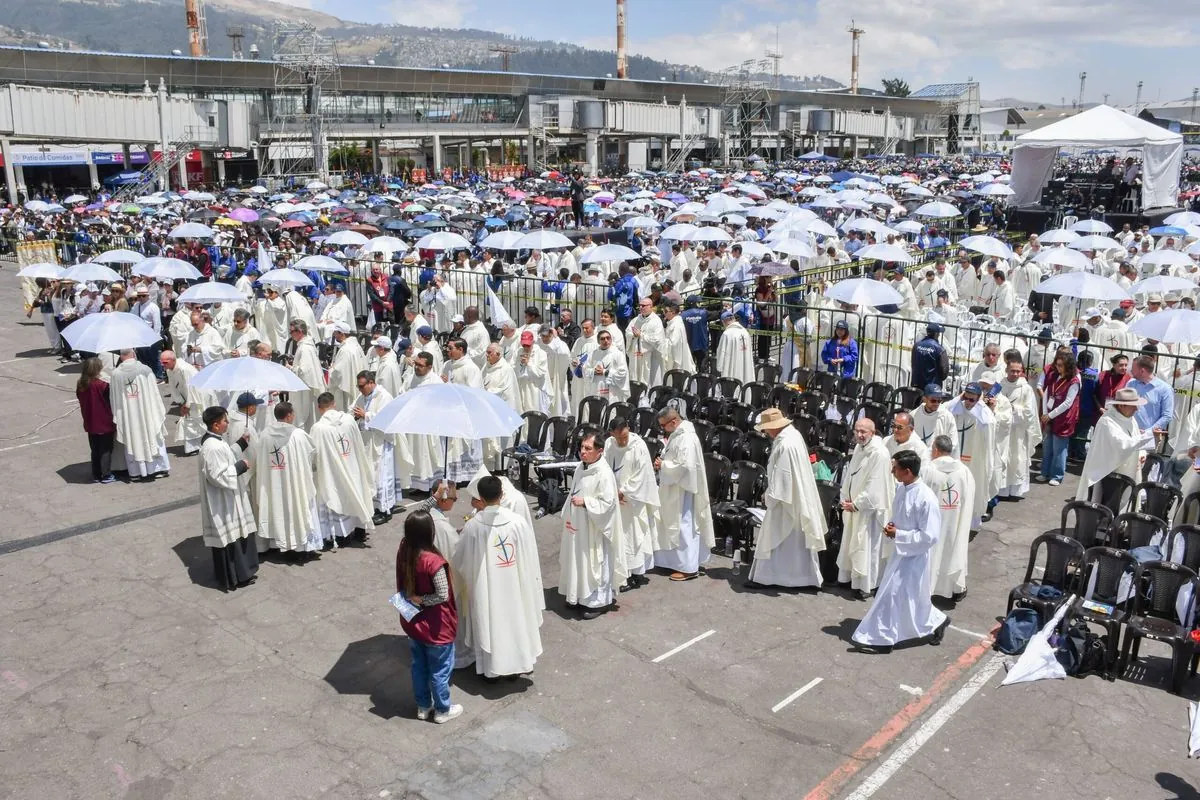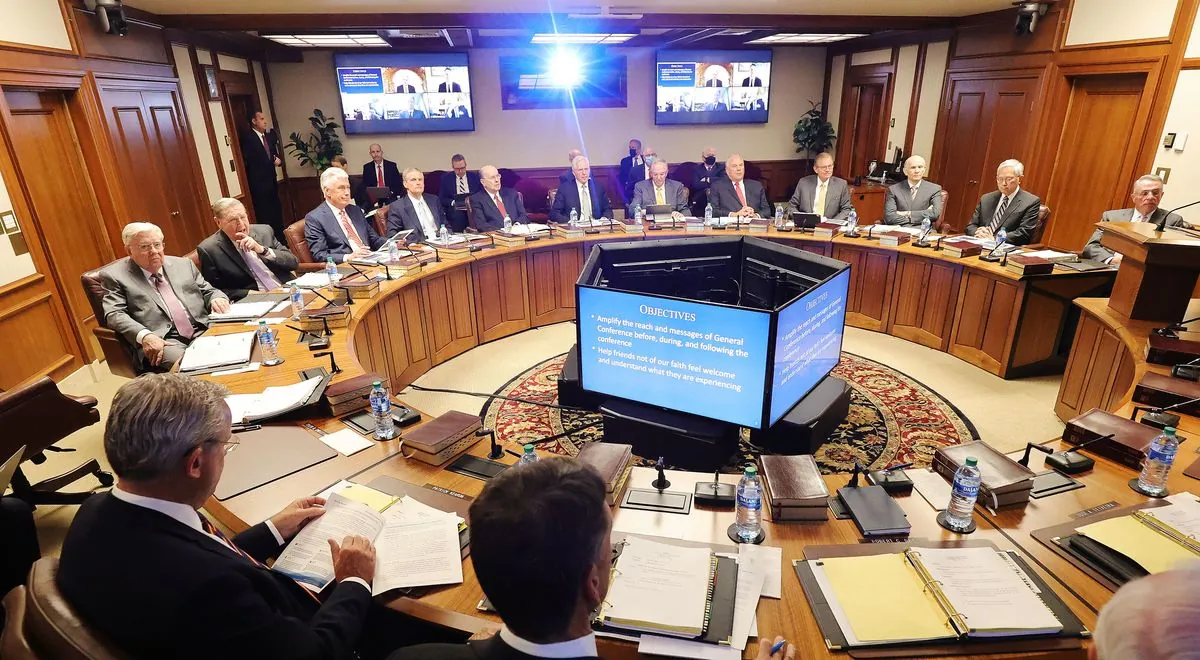Catholic Leaders Discuss Family and Fraternity at Quito Congress
Catholic leaders from over 50 countries gather in Quito, Ecuador, for the International Eucharistic Congress. The event focuses on family and fraternity as paths to healing a wounded world, amidst debates on same-sex marriages and non-traditional families.

In Quito, Ecuador, Catholic leaders from more than 50 nations convened for the International Eucharistic Congress, a significant gathering that concludes on September 15, 2024. The event, focusing on family and fraternity, aims to address global challenges and promote healing in a world described as "wounded" by participants.
Pope Francis, in a pre-recorded message, emphasized the importance of collective action for a more equitable world. The pontiff, who recently completed a four-country tour, stated, "It's an essential condition for a new, fairer world." This sentiment was echoed by Cardinal Mauro Gambetti, the Vatican's vicar general, who stressed the necessity of unity: "Today it is not possible to save ourselves on our own happy island and isolate. We need to walk together."
The congress, held in the world's second-highest capital city, brought together clergy and laity to celebrate the Holy Eucharist and discuss pressing social issues. Ecuador, with its population of 17 million, 80% of whom identify as Catholic, provided a unique backdrop for these discussions.

Rosalía Arteaga, Ecuador's former vice president, highlighted the family's role as a "cornerstone" for fraternity, emphasizing its importance in preserving societal values. This perspective aligns with the Catholic Church's traditional stance on family structures.
However, the congress also addressed challenging topics for the Church. Ecuador legalized same-sex marriage in 2019 and partially decriminalized abortion in 2022, reflecting global trends that have seen 32 countries legalizing same-sex unions as of 2024. These developments have prompted discussions within the Church about its approach to non-traditional families.
Monsignor Graziano Borgonovo, under-secretary of the Dicastery for Evangelization, expressed concern about the "crisis" in families as social institutions due to same-sex marriages and "other forms of coexistence." In contrast, Jesuit priest Iván Lucero suggested that the Church could explore new ways to support same-sex couples and non-traditional families, noting Pope Francis's more inclusive approach.
"The pope has a greater understanding and closeness to these couples, whose number is growing. But at the same time, we must ensure that the traditional family is not lost or questioned."
This congress, occurring in a country named after the equator, symbolizes the Catholic Church's ongoing efforts to balance tradition with evolving societal norms. As the largest Christian denomination with approximately 1.3 billion baptized members worldwide, the Church's discussions on family and fraternity carry significant weight in shaping global perspectives on these issues.
The event in Quito, supported by organizations like the Lilly Endowment and covered by respected news agencies such as the Associated Press, underscores the continued relevance and influence of the Catholic Church in addressing contemporary social challenges.


































